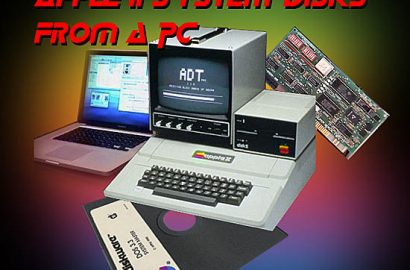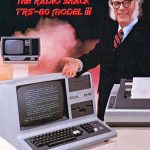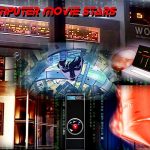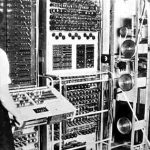Category Archives: Meetings
How to Create Apple II System Disks from a PC
- Friday, 01 June 2012 09:54
- Brad Arnold
- 0 Comments

Raj Wurttemberg will be demonstrating the use of the Apple Disk Transfer program to create Apple II system disks for Apple DOS 3.3 and Apple Pro DOS. Raj will be using a PC (Windows or Linux) to act as a disk server for an Apple II or //gs. ADTPro uses a serial connection between the PC and the Apple II to bootstrap the Apple and transfer the ADTPro program from the PC to the Apple computer. The only special equipment needed is a SuperSerial II card in the Apple II computer.
Computer Kit Presentations at the Meeting
I’m pleased to announce that, in addition of Raj’s main presentation (see above), we will be having two short presentations of kit computers from Alan Hightower and Jim Kempthorne. Alan is bringing an N8VEM Zeta SBC and Jim is bringing a Briel 8800micro. It has been proposed that we do something with a computer kit as a workshop or club project. In any case, it’s fun to find out about these products and talk about them.
- The N8VEM Zeta is a Z80 based single board computer which is software compatible with the N8VEM original. That machine was designed as a classic style microcomputer and it spawned lots of software support and peripheral boards. If you have longed for a classic Z80 computer, this would be an easily and inexpensive way to get one.
- The Briel 8800micro is a small working model of the Altair 8800, using an ATmega8515 microcontroller to emulate the 8080A microprocessor. It has a front panel with functionality similar to the original Altair 8800 and is software compatible with the original. If you always wanted an Altair but can’t justify their stratospheric prices today, the 8800micro is affordable and available.
The two machines are seen on right.

So c’mon all you game-kiddies and arm chair computer historians! Git yer hands dirty! Let’s build hardware! ‘Nuff o’ this pussy-footin’ around with appliances. Are we not MEN? I love the smell of solder in the morning!
Don’t forget that it’s this Saturday, June 9th, at 2pm here: http://christthelordlutheran.org/directions
(Use the door at the far left of the front of the church.)
All about the Radio Shack TRS-80 Model III
- Friday, 11 May 2012 15:30
- Brad Arnold
- 0 Comments

When the TRS-80 Model III was introduced in July 1980, Radio Shack’s line of TRS computers was king of the PC industry. Touted as the most affordable business computer, the Model III was arguably the apex of the Shack’s early computer offerings. Even Isaac Asimov had one! Brad Arnold is going to give us an in-depth look at this ubiquitous machine at the Atlanta Historical Computer Society meeting on Saturday, May 19th, at 2pm.
We will also get a first look at Brad’s new computer media collection, which is being made an AHCS club project. You are most welcome to bring historic computer media to contribute or just for show and tell.
This is a critical time in the growth of our club, so it’s very important that we all turn out. So yall come, ya heah? 🙂
Computer Movie Stars
- Sunday, 22 April 2012 13:50
- Brad Arnold
- 0 Comments

Computers which starred in classic sci-fi movies, helped to shape the dreams and perceptions of modern day computers. See your favorite Computer Movie Stars, (that’s the machines, not the wetware!) at our next Atlanta Historical Computer Society meeting on Saturday, April 28th at 2pm.
Dave, Brad and Steve are going out on a limb to present clips of their picks for the most interesting ones from classic films.
So come prepared to argue for your favorites in the lively discussion that’s sure to ensue!
March 31st Meeting – Computing in World War II
- Wednesday, 21 March 2012 20:46
- Brad Arnold
- 0 Comments

Photo of the British machine, Colossus
From predicting trajectories of artillery shells, bombs, and ballistic missiles to code breaking to atomic bomb design, the second World War provided more impetus for the development of computing machinery than any other event in human history. In this presentation by Dr. Brian Stuart, we will look at the convergence of a century of mathematical, mechanical, and electronic work to set the stage for the computer as we know it today.
Surface Mount Soldering Demonstration
- Saturday, 18 February 2012 14:00
- Brad Arnold
- 0 Comments
On March 3rd, we get to experience a realtime “Surface Mount Soldering Demonstration” by Alan Hightower. These days, it’s getting harder to find the old through-hole components, like the ones we saw in the 1980’s. Projects often require that surface mount parts be used.
They are ubiquitous in modern computers, are found in some vintage computers and are often essential in new boards to support vintage computers. Alan will be demonstrating surface mount soldering techniques which you can use at home to get results much like the modern boards you see today. The presentation will include:
- An overview of surface mount packages and tools.
- Demo of stencil solder paste application to a surface mount board.
- Reflow soldering of the whole board, using hot-air and a pre-heater.
- Soldering iron techniques for cleanup and rework.
- Drag soldering of components, which can’t take reflow heat.
Whether you’re a DIY builder or a vintage computer enthusiast, you’re sure to be intrigued by seeing what goes on behind the curtain to make electronic boards today.
